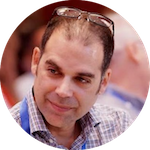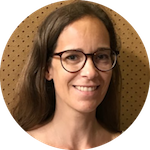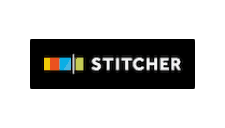Listen to Episode 27
Bonus: Watch the video of this episode on YouTube!
Our Guest Panel of Experts
Show Notes
We can sometimes struggle to find just the right opportunity to work with our colleagues from different areas of the school, hearing from teachers, librarians, counselors in school, leaders on the ways that they truly appreciate working with the coaches in their schools, gives us lots of insight into how we can best approach our colleagues across the school.
What are some good opportunities for Coaches to work with you?
Rebekah (School Leader): They do need to push up. Middle leaders in general need to remember that they have to push up. They have to advocate for their position or their beliefs in terms of what’s going to have impact on student learning. They have to be a voice in the room, but they can’t wait for the invitation. Send a calendar invite. I don’t know any admin that would go, “you know what no, I’m not going to meet with you”. Send a calendar invite or talk to the secretary. Schedule a time. Most leaders are pretty excited to talk about learning but don’t wait because other people are already inviting themselves and my calendar gets full. So it’s knowing what’s important to your school. You may not change the big things. You’re not going to change an IB school to an AP school or an American school into a British school or whatever. But if you know what learning looks like in your school and you know what to advocate for and what your leaders are looking for in those conversations.
Tico (School Leader): I think there’s kind of that saying of “The leader says, let’s go to the moon. (Wahoo visionary) And then the coach says, “Hey, let’s build that rocket”. So the coaches are the ones who have the attention to detail and who understand what it means for real. There. There was an article by a headhunter who said, “you know, in all the industries I’ve worked in (and this was in a kind of high powered person or the type of person that would find the new CEO for General Electric) no matter the industry there’s four types of workers. There’s the visionary transformational leader type. Then there’s the person who makes that vision become a reality. Then there’s a person who sees an existing process and says, I can do that better, I can improve that. And then there was the one who says, you know, I’m just going to keep the train running on time.” When you think of the coaches, the leaders got some of that for that visionary stuff, who’s going to make it real? Who’s going to improve the existing processes? That second and third type? That’s the heavy lifting that we need from coaches. It’s really hard to imagine the leader saying, “I’m going to walk into that math classroom and help that math teacher do this better.” It’s false – but the coach can say, “Look, we’re going to improve our math instruction. I think this is the way we’re going to go. Let me help build that rocket so that we can get to the moon.” That expertise, that understanding of process and priorities, pacing, the understanding of personalities and all those things are very helpful for leaders to achieve their goals.
Niki (School Counselor): On a day to day basis. I’ve talked more about those kinds of planned check ins which happen maybe about three times a year and then casual ones with people (like Trisha) that I may bump into and it becomes a bigger conversation, But then there are times when it is kind of the nitty gritty of my profession and I’m trying to move someone’s thinking forward or I’m not quite sure what to do in a, in a situation, in a more sort of daily practice way, then I can have those conversations with my colleagues. Because people are open to that type of conversation and there’s a culture of it’s okay to kind of be vulnerable then that’s really useful. And of course those conversations can be really wide ranging in terms of practice. What’s really good about that is that it benefits the students that I’m working with and the families that I’m working with. Almost straight away. Then I can think, right, okay, this is maybe a better way to do this or this is another way to do this. Or I hadn’t really gone into that way of thinking but maybe that’s going to be a bit what is. It just allows me to quickly expand my repertoire. So I guess the opportunities for coaches to work with me are just day to day, nitty gritty practice as well as big presentations where I’m trying to move thinking in a more profound way or with my life goals about wellbeing and about access and things like that.
Adam (School Counselor): Well there’s a few opportunities for coaches to work with me. One is like when you’re on the cutting edge of something and that’s one of the things I about working in a school. We have so many people from so many different disciplines that are very passionate about their area of expertise. I teach TOK as well, so I was just having a conversation with my TOK kids about some examples from science, which I know conceptually what they need. They needed an example of an area of growth within sciences where we are defining the terminology of that currently and so that’s that cutting edge and so to have the science teachers for instance, share that back to my students is really important. The same thing would carry over for the tech coaches as well. It’s like where is this cutting edge? Because of my focus on the social emotional learning and wellbeing of students, I’m familiar with the cutting edge stuff going on there. What do they need to hear? What is it like just to hang out, even to have a conversation. This is where we’re going with virtual reality and education whatever it is that they’re talking about at that moment, but more I hear glimpses, even if it’s just keywords that I understand, this is an area where probably this is coming down the pike, that is a really nice piece for me to have access to without having, like I said before, actually having to develop that full area of expertise myself because that’s completely impossible. Yet the technology is hugely influential in the world and lives and learning of my students.
Merilyn (Teacher): So I’d like coaches to appear more in my classroom every now and then, not just to observe but actually to get in there and get a little bit more hands on with it and understand the problems that I have with the students in the context of science education. I would like to see that happen a bit more. I know that there’s a lot of time restraints and things like that, but I think that would help a lot.
Jabiz (Teacher): It’s almost like students, right? If there’s kinda a set of expectations within your department or your team, almost like a rubric. One thing that our literacy coach bought in was this rubric that she created: When you’re conferencing these are good things that you should be doing; When you’re doing your mini lesson, these are things you should be thinking about. On the rubric you can clearly see where you fall. For me that was kind of an eye-opening thing because on a day to day basis, you know, teachers kind of survive and do what they need to do to teach pretty good classes. All of us can be mediocre for a long time and just kind of survive and it’s like this is the way I teach and things are going well for the most part. But then when you kind of look at it and go, actually you know what I like mediocre gets me by but I’m not doing that. And if I know, that’s kind of nice and that’s something I could be doing. It’s kind of like a rubric for the kids. That seems to be pretty effective. And again, not in a way of “oh my God, look, I’m not doing anything. I’m a terrible teacher”. But being honest with yourself, with where you are and kind of where you want to get better. I think most teachers are pretty honest with themselves and realize that they run on survival mode sometimes and then sometimes they run on, let’s get better.
Danny (Librarian): The coaches that work the best are the ones that realize that we have a lot in common. For example, myself and a K-12 tech integrator, Pim, at my previous school in Beijing, realized really early on that there was a lot of overlap between us. There was a lot of overlap in digital literacy and digital citizenship and information literacy. So I think the coaches that work really well with librarians are the ones that realize that the overlap is there and think let’s work together and let’s join all of our talents together. It saves planning time. It ends up being great when you can collaborate and present together. It also lets you divide and be in two places at the same time if you’re all on the same page.
Katy (Librarian): Right now, one of the things that I’m hoping Matt and I will work on together a little bit this year is the visual presentation of information. I went to a really great conference last year and I’ve just been thinking a lot about how I have all this information that I want to make accessible to kids and really easy for them to use. Visual organization has never been my thing. Whenever I work with our director of learning, she and I will put together some stuff and then she says, “is it okay if I clean this up a little bit so it looks nice?” I’m like, please do it. So I really need a person to coach me through that – It’s not do it for me but teach me. Maybe do it for me the rst time and then the second time really teach me how to do it better. And then the third time three me how to do it. So I’m looking forward to some coaching on the visual literacy part of delivering some of my content. I really would like some help on actually as a librarian, some help really improving our EAL specific collection. Not that you have books definitely that are only for your EAL Kids, but in collection development and selecting those and making some stronger, better choices and I think that’s something that Kendra and I are going to be able to work on. But even if I back up further from those very specific things and I think about admin as coaches. Like in the course of a regular review that they do with teachers during the year and in your professional growth plan, I’d even like to go back to some of the classic things of teaching and having a little bit of coaching as I go into my next review on how can I improve some of my instructional delivery for these large classes that are so much different now because I don’t see all the same kids all the time. I don’t have a problem with classroom management, but you can always improve it. What are some of those basic classroom management things that you can use with much larger groups of kids and kids that you don’t know individually and personally the way I used to when I was a high school English teacher? I never hesitate to ask for help. So I would say the reason that I know these people are going to help me is because they’ve made it very obvious at the beginning of the year, right from the start. A lot of times it happens in a faculty meeting. I know that I try to do this as a librarian, introducing yourself, giving examples of what you can do to help people, giving specific examples of how it’s happened before. I think that is really important. For me it’s easy because IT and Library at our school are very close so that relationship is there and it’s being developed all the time. But Kendra, our EAL Teacher is in an entirely other building from me, but she has made a point of coming down to see me. She brought me a pile of professional books the other day about some reading things that we’d been talking about. She sends emails and says, “Hey, here’s something I’ve been thinking about. What do you want to do about this?” My admin is also really great about connecting people from different parts of the school. We’re going to be working on a parent coffee morning about reading and talking to parents about reading. Rebecca our MYP coordinator is bringing Kendra and I together as EAL teacher and librarian to make that happen. So even though that’s not a moment where one of us will be coaching the other one, it’s developing those relationships in other ways outside of just your coaching relationship. Availability and relationship development – it all comes back to being nice, even though it looks different for everybody.
The Coach Certificate & Mentorship Program
An academic year of professional learning designed by coaches, for coaches!Do you want to feel more confident and inspired in your role as a coach?
Your Show Host
Kim Cofino

We love sharing great content!
Get authentic, relevant, practical content delivered right to your inbox!
Connect with Us












